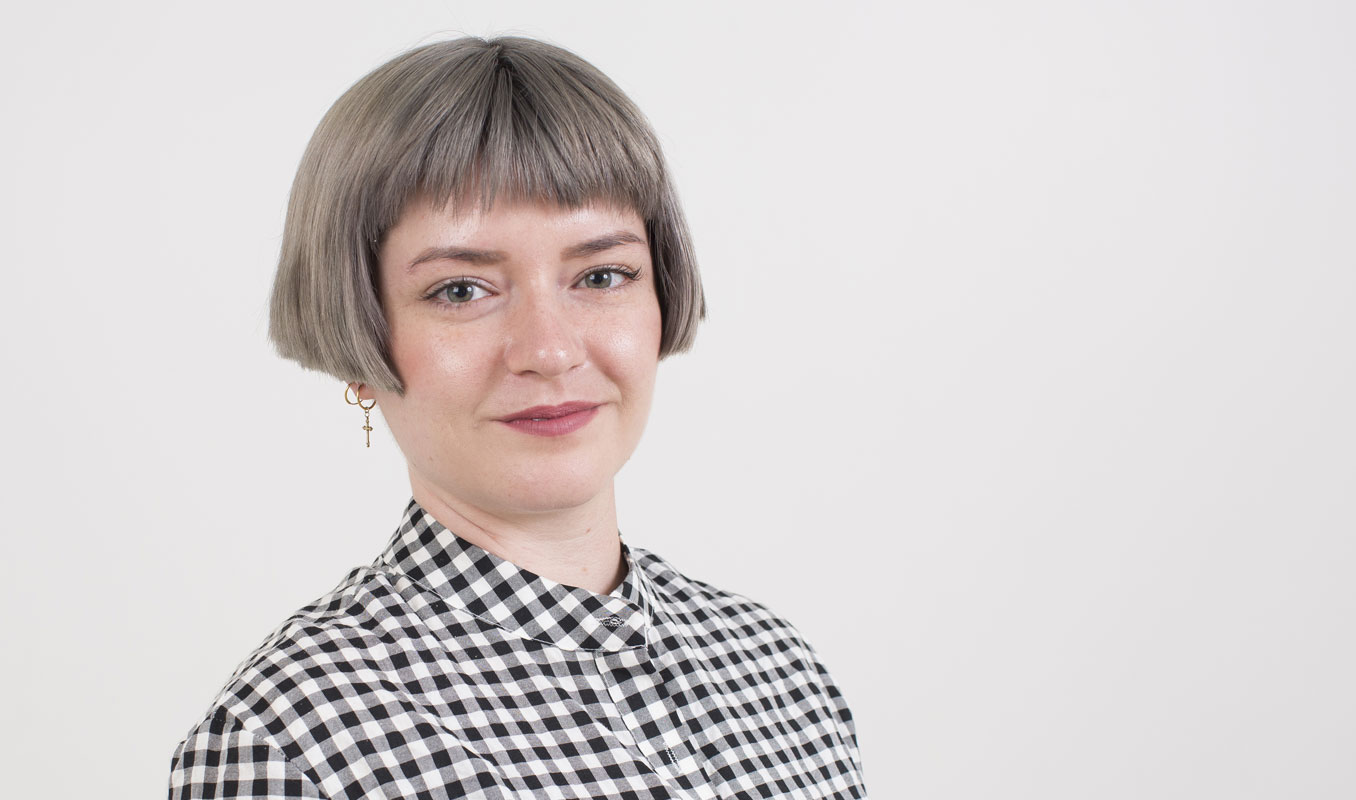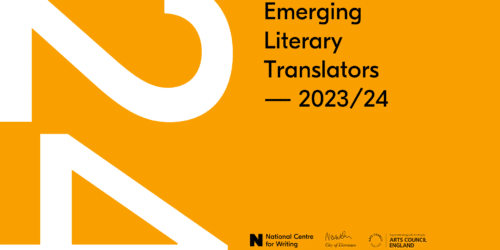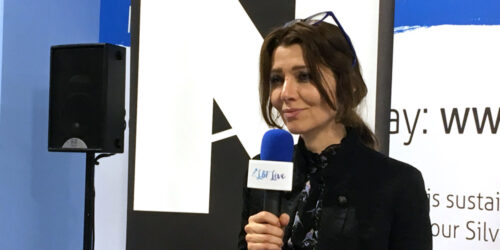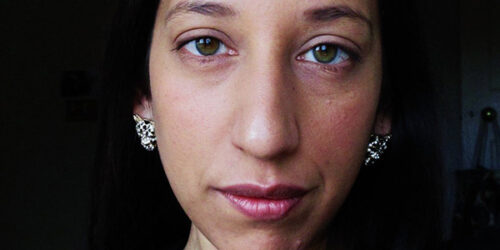
The second International Literature Showcase of 2019 has been revealed. We asked Guardian Books Online editor Sian Cain to examine Val McDermid’s selection of 10 UK-based LGBTQI+ writers and their cultural context.
Find out more about the International Literature Showcase and Val McDermid’s selection.
In 1988, Michel Foucault observed: ‘People can tolerate two homosexuals they see leaving together, but if the next day they’re smiling, holding hands and tenderly embracing one another, then they can’t be forgiven. It is not the departure for pleasure that is intolerable, it is the waking up happy.’
Don’t miss Sian’s conversation with Val McDermid about her selection:
Could Foucault have imagined that, three decades on, gay people – and also the bisexual, non-binary, transgender and everyone in between – could not only wake up happy, but also write about being so? For the International Literature Showcase, Val McDermid, one of several acclaimed LGBT authors writing in Britain right now, has selected ten writers, spanning different levels of fame, sexualities and genders, who all show how far LGBT rights have come in Britain and abroad, but also where they need to go.
Perhaps the most joyful measure of how far we’ve come since Foucault’s lament is the poet Andrew McMillan, whose debut collection physical documents the wonders of gay domesticity; I recall seeing him at a reading where, upon delivering his poem ‘Urination’, the room united in a sigh of longing – at a poem about a man holding his lover’s penis as he does a wee. His recent follow up, playtime, is a candid study of gay adolescence – a more cheerful take on a turbulent period than Luke Turner’s Out of the Woods, a memoir that charts Turner’s growing understanding of his bisexuality through his youthful encounters with strangers in London’s Epping Forest. One cheerful account, one troubled, but both mainstream and overwhelmingly acclaimed: gay love, and happiness, are now not only tolerated but even enviable.
Some of McDermid’s 10 do not write about LGBT life at all: Mary Paulson-Ellis’s The Other Mrs Walker, for example, her astoundingly-assured 2016 debut, is a mystery about mistaken identity and family secrets. Ellis-Paulson has been favourably compared to Sarah Waters – maybe for her period setting, but certainly not for any identified LGBT characters. Then there are authors like Fiona Mozley, who self-identifies as ‘queer … as a woman, but with caveats’, who has declared that she ‘could never write a novel which didn’t have queer characters at its heart’. Daniel, the young protagonist of her Booker-shortlisted novel Elmet, has no comprehension of gender theory but finds freedom in this, growing his hair long and keeping his shirts cropped in the Yorkshire copse he lives in with his sister and their ‘Daddy’, a masculine, muscular presence who nonetheless loves his feminine son.
But there is also a great liberation in not having to bear the burden of representation; as Keith Jarrett has said: ‘That burden of ‘representing’ doesn’t belong to you. You cannot be the spokesperson for your community.’ Jarrett, a young, gay, poet of colour, never shies away from this burden, in his performances or his debut collection, Selah. His poems about gang violence, religion and his dual roots in London and Caribbean culture, are confident and unsparing – and often subversive and funny, like in ‘A Gay Poem’, which he wrote after being asked if he had one: ‘Excuse me, poem, are you gay? / Have you grown up contrarily to what I wanted you to say?’
From the generation before Jarrett, Northern Ireland’s Colette Bryce has interwoven both the personal and the political in her 20-year career. But the constant through it all – from her acclaimed verse about the Troubles to cheekier poems like ‘Car Wash’, in which two women indulge in a romantic encounter in their sudsy car – is her light touch, and the sensuousness of her language. Bryce was mentored by Carol Ann Duffy, and it shows in their common humour, but there is something of the dreamlike tones of Helen Dunmore here too, and their shared ability to pinpoint small, transformational moments in daily life.
Perhaps the most exciting leap since Foucault’s observation is the emergence of a British transgender canon, with writers like Juno Dawson and Juliet Jacques putting their own lives up for scrutiny for a greater good: normalising the presence of trans men, women and everyone in between through their writing. Dawson, in particular, has taken on the role of educator with vim and candour, having transitioned publicly while writing 17 books in seven years. The Gender Games and This Book is Gay are no-nonsense guides to gender and sexuality for both adults and young people, but Dawson’s fiction specialises in giving voice to a particular kind of young woman: often precocious, a little entitled, almost all cisgender, but painfully and universally uncomfortable in their bodies. Jacques also transitioned very publicly, having documented the process in a regular Guardian column, and later reflecting on it in Trans: A Memoir.
There is so much potential for play, and some LGBT writers are having great fun weaving in the fantastical, like Kirsty Logan, the bisexual Scottish writer who won the Polari First Book Prize for her story collection The Rental Heart. Her fiction often looks at schisms, whether they are at a global level, like in her watery dystopia The Gracekeepers, or at an intimate human level, like in The Gloaming, a ‘queer, mermaid love story’. In the latter, Logan uses myths of selkies and sirens to playfully dismiss the concept of binaries: you might be neither male or female, or both human and fish. And Rosie Garland’s The Palace of Curiosity is similarly magical realist, but set around a Victorian freak show that provides a home for the misfits forced out of “normal” society.
And it is in literature that all readers can find their home; as a vilified minority, LGBT readers even more so. So should it matter, then, if a queer writer writes about topics aside from their queerness? Do they have a duty to explain the joys and challenges in their existence, especially now, in a time where hard won rights and freedoms are under attack? Perhaps they do, in that every book is a link in a chain that extends back into the past, to those pioneering British LGBT writers who came out on the page – EM Forster, Virginia Woolf, Mary Renault – and trails into the future, when a future canon will be built on stories written today.
You may also like...
Elif Shafak and Bidisha talk #MeToo, identity politics, libraries and inequality
in conversation at London Book Fair 2019

14th March 2019
Bidisha examines Elif Shafak’s selection of extraordinary UK women writers
‘Elif Shafak’s selection of writers gives us a powerful concentration of literary and cultural concerns.’

12th March 2019






